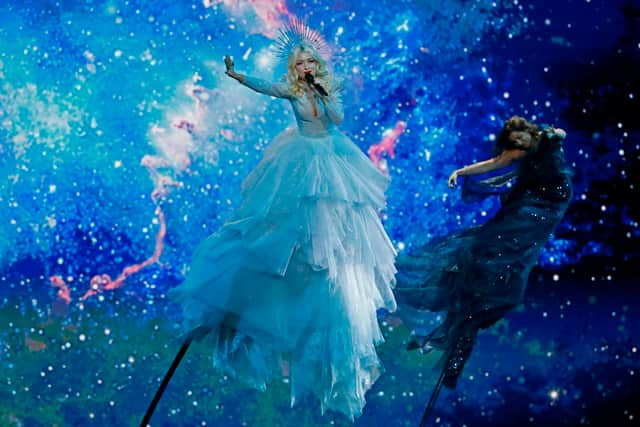Why is Australia in Eurovision? Why non-European countries take part in the song contest
and live on Freeview channel 276
When you think of Eurovision, you think of it being uniquely European.
From folk-rap songs, to yodelling pop hits, it often showcases the broad spectrum of European culture. This makes the inclusion of non-European countries sometimes baffling.
Advertisement
Hide AdAdvertisement
Hide AdAustralia has been given a permanent seat at the Eurovision table in the past few years, with 2023 marking its seventh appearance in the contest. Progressive metal band Voyager will be bringing their song 'Promise' to the Eurovision stage in Liverpool, hoping to make it through the second semi-final on Thursday evening (11 May)
Bu why are Australia a part of Eurovision in the first place - and what is the country’s track record in the competition?
Here’s everything you need to know.


Why is Australia in Eurovision?
Australia was first invited to join the contest in 2015.
The country was given automatic qualification to the final in what was supposed to be a one-off event to celebrate the 60th edition of the contest.
Although it is outside the European Broadcasting Union, Eurovision has been hugely popular in the country since is began broadcasting the United Kingdom’s feed in the early 1980s.
Advertisement
Hide AdAdvertisement
Hide AdThe plan was to only allow Australia to compete again after 2015 if they won the competition, however, after seeing succes at their first ever appearance, it was confirmed later the same year that they would once again be competing in the 2016 contest.
Although Australia was given auomatic qualification as part of the 60th anniversary, the country has been a part of the semi-final qualifiers since 2016.
The European Broadcasing Union (EBU) has confirmed Australia’s participation in the contest until at least 2023.
Has Australia ever won Eurovision?
Australia does not have any Eurovision trophies yet.
They have competed in the 2015, 2016, 2017, 2018, 2019, 2021, and 2022 contests.
Advertisement
Hide AdAdvertisement
Hide AdAlthough they have not won the competition, the country does have an impressive track record in its short time in Eurovision.
In the first appearance, Guy Sebastian placed fifth, while Dami Im bettered this with a silver medal position in 2016.


Isaiah, who represented Australia in 2017, and Kate Miller-Heidke, who represented in 2019, both gained top 10 placements.
If Australia was ever to win the contest, EBU rules state that the show cannot be broadcast from the southern hemisphere, meaning that another European country would be delegated to host the event on its behalf.
Are there any other non-European countries in Eurovision?
Advertisement
Hide AdAdvertisement
Hide AdAustralia isn’t the only country to take part in Eurovision from outside Europe.
Middle eastern countries such as Israel and Cyprus have taken part since 1974 and 1981 repsectively.
Asian country Armenia has participated since 2006, with North African counrty Morroco making a fleeting appearance in 1980 only.
Transcontinental countries are also a part of the contest - Russia joined in 1994, Turkey in 1975, Georgia in 2007 and Azerbiajan in 2007.
Advertisement
Hide AdAdvertisement
Hide AdMost countries have remained a part of the contest since joining, with some even seeing success.
Russia, Turkey, Irsael, Cyprus and Azerbaijan have all produced winning performances.
When is the Eurovision 2022 final?
The grand final will take place at 8pm UK time on Saturday 14 May.
It will be broadcast on BBC One, with Graham Norton returning to provide his witty commentary for Europe’s biggest show.
Comment Guidelines
National World encourages reader discussion on our stories. User feedback, insights and back-and-forth exchanges add a rich layer of context to reporting. Please review our Community Guidelines before commenting.
